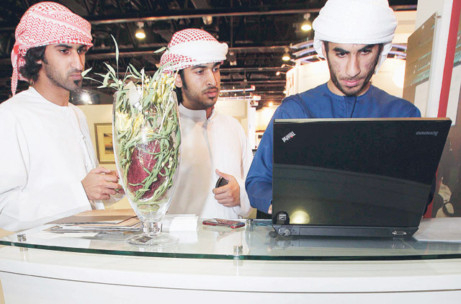
In 1948, and following the Second World War, the US gave monetary support to help rebuild collapsing European economies through what is known as the Marshall Plan. The purpose was to prevent the spread of Soviet Communism to the European countries that were largely devastated by the War.
During the four years of the Plan’s operation, the US gave more than $13 billion (Dh47.8 billion) in monetary and technical assistance to help rebuild post-war Europe.
Today, foreign aid remains instrumental in shaping and strengthening ties between different nations of the world and the UAE is at the forefront of aid-givers. With more than Dh225 billion given in loans, grants and assistance since 1971, according to the UAE Ministry of Foreign Affairs, the UAE is the world’s 20th most generous donor. Despite that, much needs to be done to ensure that the UAE’s aid is not only continuous, but also effective.
Like any other sector, upgrading the quality of the increasingly important field of aid and development must start with the people working in it. Even with the advances made over the past decades, the world of charity and aid-giving organisations in the UAE and in the region in general continues to be dominated by personnel that lack the understanding, skill and technical expertise necessary for this important field.
The aid sector in the UAE is overwhelmingly staffed with religious people and do-gooders who may possess the right intentions, but severely lack the technical and practical expertise necessary to successful and effective aid deployment in recipient countries. This is due to the fact that the notion of charity and aid are still viewed by many as a religious obligation that must be facilitated and carried out by those who “know the words of God” and therefore can be trusted with large funds. Until we change this limited “demand” and understanding of aid, we will continue to get the same monopolised “supply” of aid workers and the same results on the ground.
Aid is a complex and technical field. It is a crucial and sensitive component of any country’s foreign policy, but more importantly, it has the power to shift people’s everyday realities if utilised effectively. People working in this field need to be knowledgeable about the development discourse and need to have a deep understanding of the historical background as well as the economic, geographic and demographic nature of the recipient country, as these are areas that can significantly determine the type and size of aid and/or interventions possible or necessary. Furthermore, they need to have the practical skills that will enable them to ensure that aid programmes are context-appropriate, cost-efficient as well as effectively executed.
In the past few years, stories began to surface about abandoned hospital buildings in developing countries that cost millions of dirhams, but could not be maintained by the host government. Due to poor planning and management on both ends, host countries were unable to provide sustainable plans to keep them running. Such significant monetary losses can easily be prevented by ensuring that those working on aid programmes have the appropriate skill to design and implement country-specific projects that are regularly monitored and evaluated for best results.
Good intentions without the relevant expertise, knowledge and continuous evaluation are not only useless, but also irresponsible, considering the opportunity cost of people being deprived of medical treatment, education and nutrition to name but a few. Furthermore, we cannot have individuals working for development and aid organisations with little or no practical experience. A two-day media visit hardly qualifies for an evaluation visit.
The UAE foreign aid strategy is moving towards supporting larger developmental programmes, assisting government strategies, empowering institutions and building capacities in aid-receiving countries. The same should be done to our aid organisations at home.
One of the solutions could be to prepare a generation of young, qualified, skilled Emiratis, equipped with the analytical, methodological and practical skills needed to re-engineer the UAE aid sector and truly position the country as a regional and international leader.
Foreign aid and assistance is one of the basic pillars of the UAE’s foreign policy and one of the top priorities in its external relations approach. It is therefore surprising that not a single academic institution or university in the UAE offers a degree in development or aid. Those interested in the field resort to colleges in western countries.
International aid and development is current; it is occurring right now and is constantly changing. The discipline equips you with a range of tools for the formulation of appropriate responses in a wide range of fields including politics, economics, law, history, education, health and emergency response. Furthermore, opening the door to Emirati students to venture into this field professionally will greatly minimise our dependence on foreign consultants and “experts”.
The number of developmental and aid programmes offered by international colleges and universities has grown over the last 20 years. It is time for our universities to establish programmes that provide our students with the discipline to be able to catch up with this growing sector. There have been many examples in the UAE of demand driving supply, such as the case with the new offered museum management programmes. The aid sector deserves the same attention.
It is time for the aid industry to be revamped and re-engineered with infusion of new blood — with not only the right intentions, but with the right skill and expertise.
Asma Malik and Maria Hanif are both development specialists. You can follow them on Twitter at www.twitter.com/AsmaIMalik and twitter.com/Maria_Hanif








